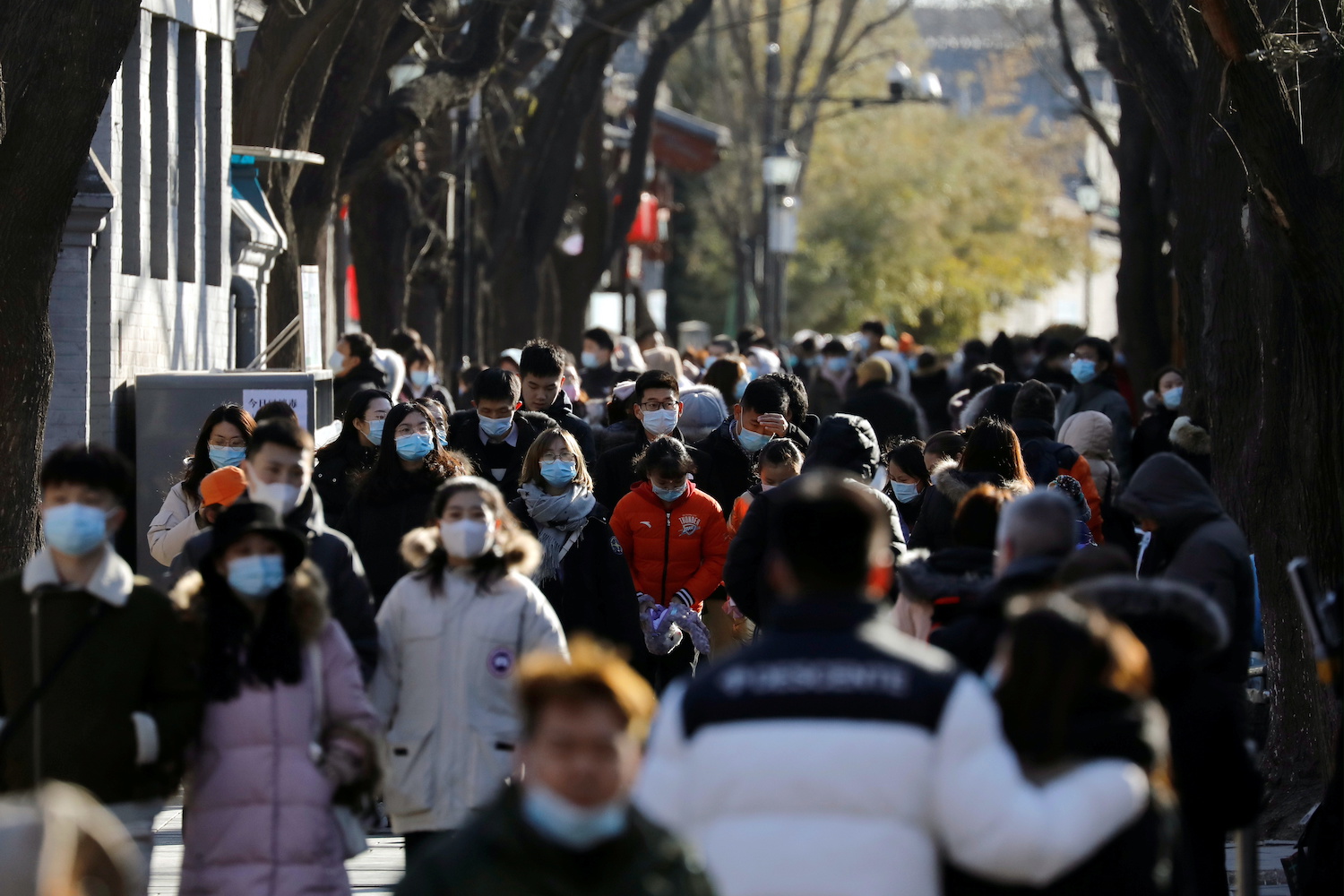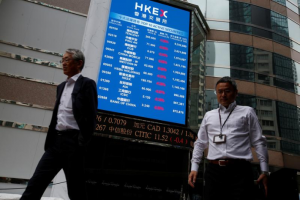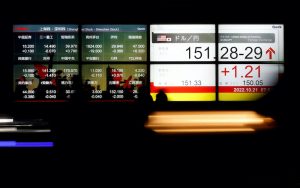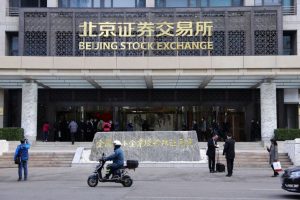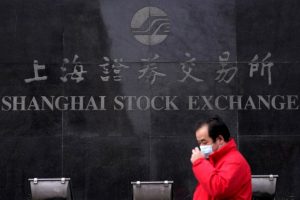The new Beijing Stock Exchange is poised to launch on Monday, intensifying the rivalry between China’s three bourses and providing a boost for cash-starved small- and medium-size enterprises that drive the nation’s economic growth.
With a focus on “zhuan jing te xin” (specialized, excellent, differentiated, and innovative) companies, the Beijing exchange will have 81 companies listing when it kicks off on Monday, including Beijing Henghe Information Technology, Keda Automation Control and Anhui Jingsai Technology. It’s seen expanding rapidly and could have close to 100 companies in sectors such as advanced manufacturing, technology, media, telecoms, new chemical materials, and healthcare by the end of the year, says Zhu Haibin, an analyst with Essence Securities.
The new Beijing bourse is designed to complement Shanghai and Shenzhen bourses but some analysts see a diversion of capital away from the established markets in Shanghai and Shenzhen. As China’s only company-run stock exchange, the Beijing exchange will be able to adopt best international practices more easily than its peers, says Bi Xiuli, a lawyer and partner of Beijing-based DeHeng Law Offices, said.
“There will inevitably be competition between the three, which will in turn force them to improve their services,” said Bi. “It will be a more robust bourse.”
The establishment of the bourse underlines policymakers’ efforts to support small businesses and may signal an acceleration of capital market reforms. The private sector contributes more than 60% of gross domestic product, more than 70% of technological innovation and more than 80% of urban employment, according to Vice Premier Liu He, who is President Xi Jinping’s top economic adviser.
Boosting Small Companies
Officials have undertaken several measures over the past year or so to boost the development of SMEs. The cabinet in September ordered China’s central bank to provide 300 billion yuan ($47 billion) in a re-loan quota to local banks in a bid to support small businesses. Crackdowns on monopolistic practices of major tech firms such as e-commerce behemoth Alibaba and food delivery giant Meituan could also help to give more breathing room to the smaller rivals and merchants.
The Beijing exchange will be 100% owned and operated by the National Equities Exchange and Quotations Co Ltd (NEEQ). It does not set a minimum dividend percentage for listed companies, and it also inherits a market-making scheme from its predecessor, the NEEQ Select tier, says Bi. The regulator published operating rules on Saturday.
ALSO ON AF: Alibaba Among Top Six China Stocks Worth $1tn Facing US Delisting
China Orders Firms to Undergo Security Review Ahead of Overseas Listings
Established in 2012, NEEQ is an exchange for over-the-counter trading of stocks, and is often seen as an entry-level system for smaller companies to raise funds before listing on mainland China’s two main stock exchanges or overseas.
The 70 companies currently listed on the NEEQ Select tier will be moved over to the Beijing exchange once trading begins. Nearly 70% of these firms are from the materials and industrial sectors, while smaller portions come from IT and healthcare, according to Wind data.
Besides the top Select tier, NEEQ also has a second Innovation tier and a Base tier, which together house over 7,000 SMEs that can also move to the Beijing exchange once they meet credential requirements.
Intended for “Little Giants”
Compared with China’s two other Nasdaq-style boards – the STAR Market in Shanghai, which has a tech focus, and ChiNext in Shenzhen, which serves more sectors – the Beijing exchange is intended for startups that are even smaller and in an earlier stage of business, Bi said.
There’s also a “probation” period. A company that seeks to stage an Initial Public Offering on the Beijing Stock Exchange must have been listed on NEEQ Innovation for at least 12 consecutive months – but there is no such requirement for an IPO on the STAR Market or ChiNext.
Open to more retail investors
The Beijing exchange will be easier to access for retail investors compared with its predecessor the NEEQ Select board. It requires a minimum of 500,000 yuan ($78,100) of assets in a retail investor’s brokerage account while NEEQ Select board asked for twice that amount.
However, analysts have warned investors of higher volatility of stocks listed in Beijing.
The trading rules issued on Tuesday note that stocks on the Beijing exchange can move 30% daily, compared with a 20% price band for STAR and ChiNext and a 10% price band for the main boards.
Eric Hu, a Shanghai-based retail investor with over 10 years of stock investment experience, told Asia Financial he would “wait and see” to invest in stocks listed on Beijing exchange.
“I would be interested in subscribing for IPOs. But for long-term stock investment, probably not now,” he said. “Whether stocks listed in Beijing are worth investing depends on the quality of the companies. The good startups familiar to us have mostly gone public to the US.”
The move to establish the Beijing exchange comes after China and the US set up roadblocks in the path of Chinese firms that want to list, or remain listed, on US exchanges in New York.
• By Iris Hong
This report was updated with new information on November 12.
ALSO SEE:
China’s New Beijing Exchange Sets Up Potential Bourse War
Shanghai Exchange STAR Gazing With Launch of Next-Gen IT Index
China backs merger of Shenzhen’s main stock and SME boards




